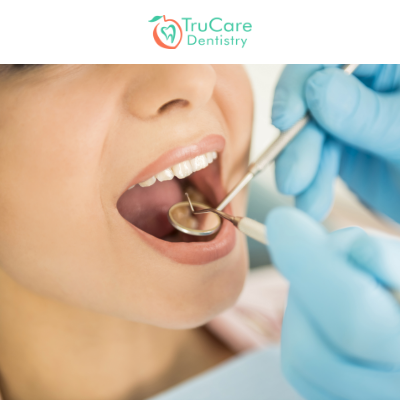
Do you know good dental hygiene not only gives you a perfect smile but also makes you more fertile? Wondering how? Well, the link between dental health and fertility applies to both men and women. Several studies have suggested that oral health may impact the ability of a woman to conceive. Whereas, in men, poor oral health like tooth decay, and gum disease can lead to poor semen and sperm health. In this blog, you will get to know how oral health can impact a person’s fertility levels.
Many patients and even healthcare professionals are not aware of the fact that treating periodontal disease and gingival inflammation could improve the chances of conceiving in the future. Proper treatment of oral health related diseases also improves the overall general health and prevents the chances of tooth loss. It is also believed that treating periodontal disease in men could improve their sperm mobility and overall reproductive health.
Even during pregnancy, poor oral health can lead to an increased risk of:
- Gestational diabetes
- Preeclampsia
- Preterm labor
- Having a low birth weight baby
Hence, it would be correct to say that keeping your teeth and gums healthy is not only important for your fertility but also for the better health of your child.
The relation between fertility and dental health
As mentioned above there is a direct correlation between oral health and pregnancy, and fertility as well. Due to poor oral health:
- In women, bacteria can triple the risk of infertility before pregnancy
- In men, it can reduce the sperm count and sperm’s ability to swim as well
Most fertility and dental health issues are linked to periodontal disease. So what exactly is periodontal disease? Periodontal disease is a chronic infection or inflammation of the gums, supporting tissues, and jawbone that can damage the gums and destroy the jawbone. This disease or infection has been linked to various systemic diseases like cardiovascular issues and diabetes. The circulation of periodontal pathogens or related metabolic products due to the infection can cause a widespread inflammatory response in the body. Moreover, periodontal disease is also linked to adverse pregnancy outcomes such as premature birth and low birth weight.
Signs of periodontal disease
Some of the possible signs of periodontal disease are swollen, red, and tender gums. Regular dental checkups can help your dentist to detect the signs of periodontal disease at an early stage. Dentists usually use a periodontal probe (dental tool), a thin, long metal pick with measurement indicators to examine the gums. By gently pressing this dental tool into the pockets or spaces of tissue between the gum and tooth, dentists can determine the health of your gums. For instance, upon pressing if deeper pocket measurements are detected, it is a possible sign of periodontal disease. About 1 in 10 people suffer from severe periodontal disease. If left untreated, the infection can lead to tooth loss and the occurrence of irreversible jawbone deterioration.
Gingivitis-another form of gum disease
You might have also heard about gingivitis. It is a minor form of gum disease. It also involves the inflammation of gums but it doesn’t cause bone loss as a periodontal disease does. However, if left untreated, gingivitis can progress to periodontal disease.
Factors that contribute to the development of periodontal disease
Several risk factors may contribute to the development or progression of periodontal disease. Some of the key factors include:
Smoking/tobacco: excess consumption of tobacco can lead to various serious illnesses like cancer, heart disease, lung disease, and many others. Tobacco users are also at a higher risk of getting periodontal disease. Several studies have shown that consuming tobacco can significantly increase the risk of development and progression of periodontal disease.
Genetic factors: Many researches have also indicated that some people may be genetically vulnerable to gum disease. Despite following a daily good oral hygiene routine, these people are likely to develop periodontal disease.
Stress: Stress is the root cause of many serious issues like hypertension, cancer, and many other health problems. It is also a risk factor for causing periodontal disease. Taking so much stress reduces the ability of a person’s body to fight against infection including periodontal disease.
Medications: Certain medications or drugs like anti-depressants, oral contraceptives, and a few heart medicines can also have an adverse effect on your oral health. If you are taking such medications, make sure to inform your periodontist about the same.
Clenching or grinding your teeth: You will be surprised to know that a common habit of clenching or grinding teeth can also be the reason for the occurrence of periodontal disease. When you clench or grind your teeth, it puts excess pressure on the supporting tissues of the teeth, which increases the rate at which periodontal tissues are destroyed.
Other reasons: Women having polycystic ovarian syndrome (PCOS) and endometriosis and men dealing with erectile dysfunction are also at a high risk of diagnosing with periodontal diseases as compared to the general people.
All the above-mentioned factors can lead to periodontal disease and may have a great impact on a person’s fertility levels. It is advisable to start your fertility journey with a comprehensive gum health assessment by a professional dental clinic. Before conceiving and even during the pregnancy, oral health plays an important role in the overall health of a woman as well as the baby.
Conclusion:
So, if you are planning for a baby, it will be a good idea to get a check-up done with your dentist. If you are in Roswell, GA, you must get the assessment done from TruCare Dentistry. It is well-renowned dentistry in Roswell that has a team of highly-qualified professionals. These professionals can perform a comprehensive dental check-up and suggest the right treatment options, in case you have a dental issue.
